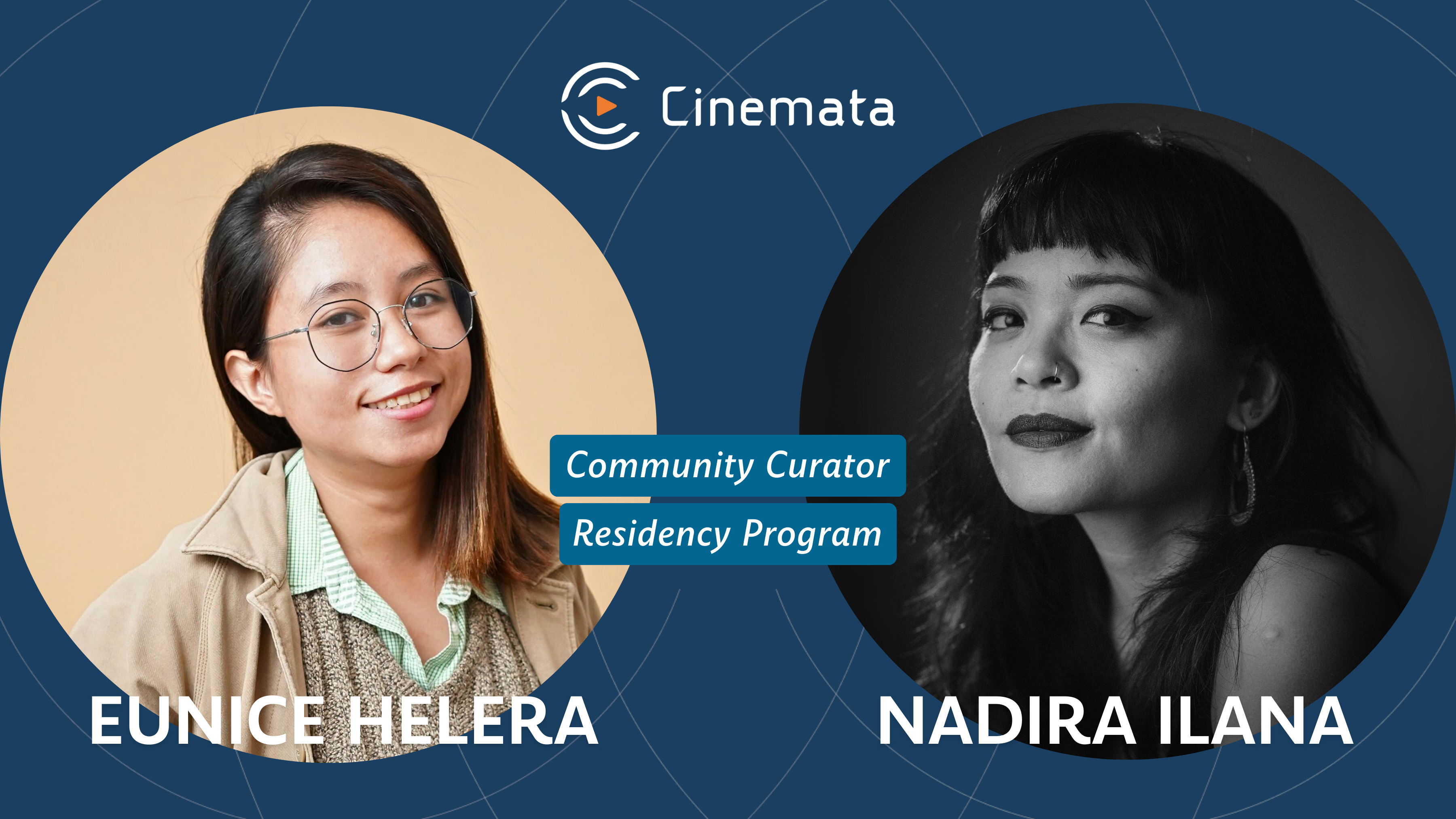Meet Cinemata's New Community Curators: Eunice Helera and Nadira Ilana
In the coming months, Eunice Helera and Nadira Ilana will be curating films and programs for Cinemata.org, programming films on the front page while engaging with filmmakers and advocates from their communities and networks. Their work is part of the Cinemata Community Curator Residency Program, an ongoing initiative to ensure diverse community voices and perspectives are authentically represented on the platform. Building on the foundation laid by previous curators Patrick Campos from the Philippines and Aghniadi from Indonesia, Nadira and Eunice's programmatic work will culminate in a collaborative human rights film program designed for online watch parties and other hybrid community activities.
Nadira Ilana
What excites you most about being a Cinemata.org curator?
As an indigenous filmmaker, programmer and activist from Borneo-Malaysia, Cinemata strongly aligns with my values. While many film festivals take us as Southeast Asian filmmakers to the global north, I appreciate that Cinemata's reach is rooted in the Asia Pacific. Here, I can discover more films that highlight creative expression, human rights and digital safety within the region I belong to. I am also drawn to Cinemata's exemplary team and the vibrant community of artists, activists and cultural institutions they work with—many of whom I might not have encountered otherwise. This community curator residency offers a welcome learning opportunity, and I look forward to exploring more films, connecting with audiences and deepening my understanding of the creative and advocacy landscapes across the region.
Nadira Ilana is an indigenous Dusun filmmaker and film programmer from Sabah, Malaysia. She founded Telan Bulan Films (Swallow the Moon) to ethically amplify indigenous and minoritised voices in mass media, with CineBah as its film programming arm. Nadira treats film as a means to express, reimagine, and interpret intangible cultures. She was recently named a Purin Flaherty Fellow at the 70th Flaherty Film Seminar. Her debut feature, Ballad of the Half-Boy—adapted from a Sabahan folktale—is slated for release in 2025.
Eunice Helera
What role do you think film curation plays in supporting filmmakers working on human rights and environmental justice?
Audiences can feel intimidated when a film is labeled as "human rights" or "environmental justice." Filmmakers sometimes worry their work doesn't belong in that space, that their films aren't the kind that can spark change. But every film, in its own way, touches on these questions—whether loud or quiet, direct or hidden in the margins. This is where curation becomes a bridge.
As curators, we reassure filmmakers that their work is worth championing, and we help audiences find their way into a story. I imagine audiences as hungry and curious—not passive, but open to being moved by film and leaving the theater with new questions, new empathy, and maybe even new resolve.
Curation also creates community. A film can bring together people who might not otherwise meet: one person who has lived through injustice, another who has only watched from the outside. Their conversations may start in different places, but sharing a film allows them to stand beside each other. In a time when distance and alienation are so common, that act of standing together feels radical.
For filmmakers, this process validates their craft—showing them that their work isn't just personal expression, but part of a larger tapestry of voices calling for care, justice, and change. For audiences, curation opens a path to not only witness, but to join in.
I think of curation as both an offering and an invitation. Films are vessels of meaning, and our work is to help those meanings slip into conversations, into everyday lives, into communities. Because when that happens, a film doesn't just screen—it stays.
Eunice Joyce Helera is a Filipino film programmer and festival coordinator based in Quezon City, Philippines, with expertise in film festival management, audience engagement, and community-based screenings. Her focus areas include East Asian cinema and Philippine cinema. Eunice's recent fellowship engagements include the Udine FAR EAST Film Festival CAMPUS program (Italy, 2022), the Internationale Kurzfilmtage Oberhausen Seminar (Germany, 2023), and the Programmers Development and Networking Initiative for ASEAN-Japan Programmers and Curators at the Tokyo International Film Festival (2024). She has served as festival coordinator for the French Film Festival, the Japanese Film Festival, the Spanish Film Festival, and the International Silent Film Festival Manila. Currently she works for the Italian Film Festival and Kinofest (German Film Festival). Eunice leads Elevated Frames PH, a collective for emerging Filipino film programmers, and recently joined the Community Curators of Cinemata, a video platform championing social issue films from the Asia-Pacific.
